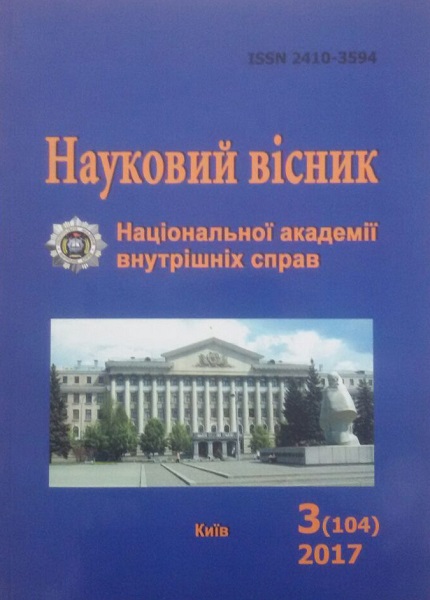ADMINISTRATIVE AND LEGAL ANALYSIS OF VIOLATING REQUIREMENTS FOR CONFLICT OF INTERESTS PREVENTION AND CONTROL
Keywords:
conflict of interests, potential and real conflict of interests, criminal, administrative and disciplinary responsibility
Abstract
The article presents legal analysis of Art. 1727 of the Code of Ukraine on Administrative Offences (hereinafter the CAO) «Violation of requirements for the prevention and settlement of a conflict of interests». The features of the article disposition and types of penalties for this type of offense are revealed as well as the types of liability for breaching requirements for settling conflicts of interest in foreign countries.
Downloads
Download data is not yet available.
Abstract views: 61 PDF Downloads: 27
How to Cite
[1]
Didenko, I. 1. ADMINISTRATIVE AND LEGAL ANALYSIS OF VIOLATING REQUIREMENTS FOR CONFLICT OF INTERESTS PREVENTION AND CONTROL. Scientific Herald of the National Academy of Internal Affairs. 104, 3 (1), 344-352.
Issue
Section
Theoretical and practical aspects of legal science
- Authors reserve the right to authorship of their own work and transfer to the magazine the right of the first publication of this work under the terms of the Creative Commons Attribution License, which allows other persons to freely distribute published work with mandatory reference to authors of the original work and the first publication of an article in this magazine.
- Authors have the right to enter into separate additional agreements on non-exclusive dissemination of the work in the form in which it was published in the journal (for example, to post an article in the institution's repository or to publish as part of a monograph), provided that the link to the first publication of the work in this journal is maintained.
- The journal's policy allows and encourages the posting of articles by authors on the Internet (for example, in electronic storehouses of institutions or on personal websites), both before the submission of this manuscript to the editorial office and during its editorial processing, as this contributes to the creation of a productive scientific discussion and positively affects the efficiency and dynamics of citing the published work.




